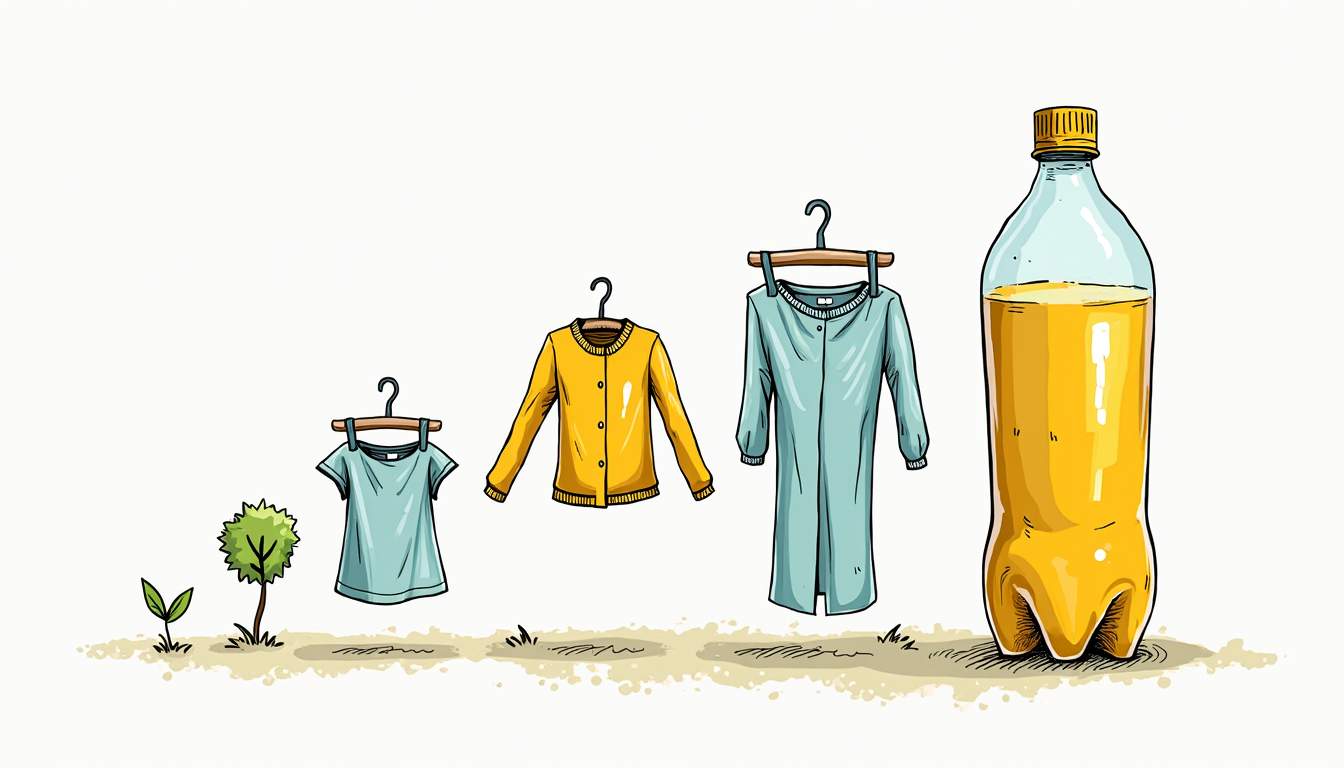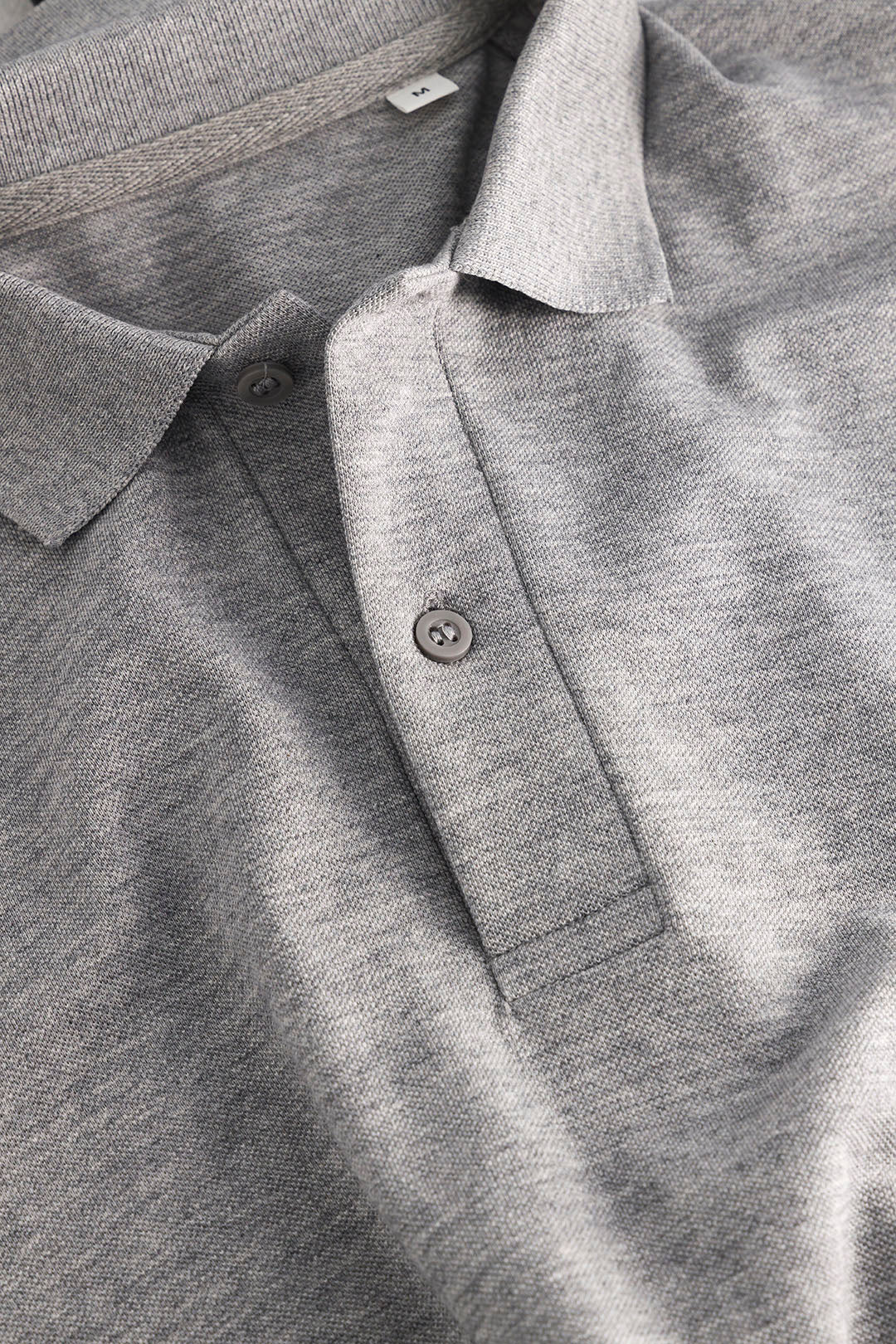From bottle to garment with Stanley/Stella
The journey from discarded plastic bottles to stylish garments is not just a fascinating process; it's a vital step toward sustainability in the fashion industry. As brands increasingly focus on eco-friendly practices, understanding this transformation becomes essential. In this article, we'll explore the 2024 carbon footprint overview, the advantages of recycled polyester, and the detailed journey of turning bottles into garments.
2024 Carbon Footprint Overview
As the world becomes more environmentally conscious, the fashion industry is under pressure to reduce its carbon footprint. In 2024, the focus on sustainability is expected to intensify, with brands like Nerds leading the charge by emphasizing durable, high-quality products. The use of recycled materials, such as polyester derived from plastic bottles, plays a crucial role in this effort.
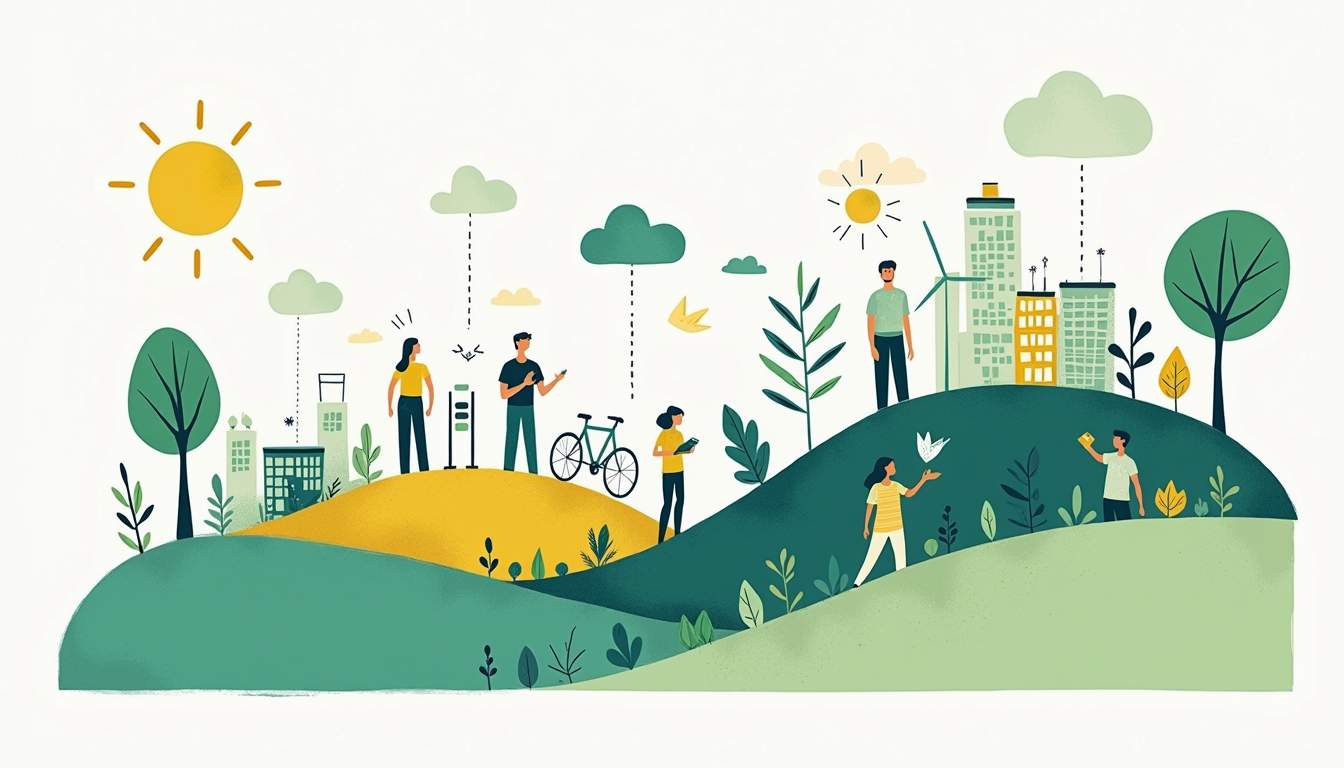
By shifting to recycled polyester, companies can significantly lower greenhouse gas emissions associated with traditional polyester production. This shift not only conserves resources but also reduces waste, making it a win-win for both the environment and consumers seeking sustainable options.
Advantages of Recycled Polyester
Recycled polyester offers numerous benefits that make it an attractive choice for both manufacturers and consumers. Firstly, it helps reduce plastic waste, which is a growing concern worldwide. By repurposing plastic bottles, the fashion industry can divert millions of tons of waste from landfills and oceans.
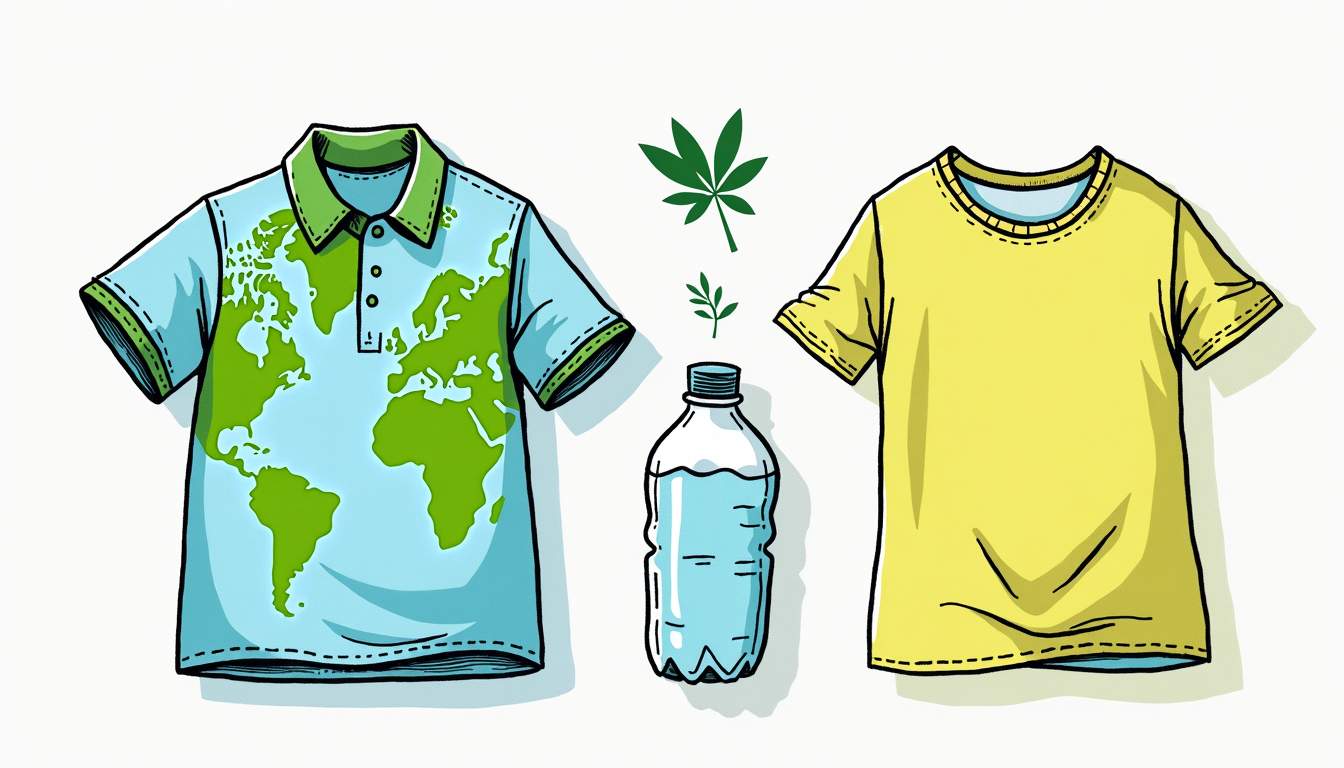
Moreover, recycled polyester requires less energy to produce compared to virgin polyester. This means lower carbon emissions and a smaller ecological footprint. Additionally, garments made from recycled materials often retain the same quality and durability as those made from virgin fibers, ensuring that consumers do not have to compromise on style or longevity.
From Bottle to Garment: A Detailed Journey
The transformation of plastic bottles into fashionable apparel involves several intricate steps. Understanding this process highlights the innovation and effort behind sustainable fashion.
Collection and Sorting Process
The journey begins with the collection of plastic bottles, which are typically sourced from recycling programs and collection centers. Once gathered, these bottles undergo a sorting process to separate them from other materials. This step is crucial in ensuring that only suitable plastics are used in the production of recycled polyester.
During sorting, bottles are categorized based on their resin type, with PET (polyethylene terephthalate) being the most common for beverage containers. This careful selection ensures that the final product maintains high quality and performance standards.
Cleaning and Shredding Techniques
After sorting, the bottles are thoroughly cleaned to remove any contaminants, such as labels, caps, and residues. This cleaning process is vital to ensure that the recycled polyester is free from impurities that could affect the final product's quality.
Once cleaned, the bottles are shredded into small flakes, making them easier to process in subsequent steps. This shredding not only facilitates the recycling process but also increases the surface area for further treatment.
Melting and Pelletizing Methods
The shredded flakes are then melted down and transformed into small pellets through a process known as pelletizing. This step involves heating the flakes to a specific temperature until they liquefy, after which they are cooled and solidified into pellet form.
These pellets serve as the raw material for producing recycled polyester fibers, ready to be spun into yarn. This method not only streamlines the recycling process but also ensures that the final product is consistent and of high quality.
Melt Spinning Explained
Once the pellets are ready, they undergo melt spinning, a process that transforms them into fibers. In this step, the pellets are heated again and extruded through spinnerets, which are devices with tiny holes that shape the molten material into long strands.
The resulting fibers are then cooled and solidified, forming the basis for the fabric that will eventually be used in garments. This process allows for the creation of high-quality polyester fibers that are both durable and versatile, making them suitable for a wide range of applications.
Weaving and Final Production Steps
After the fibers are produced, they are spun into yarn and woven into fabric. This fabric can then be dyed and treated to achieve the desired color and finish. The versatility of recycled polyester allows for various textures and styles, catering to different fashion trends and consumer preferences.
Finally, the fabric is cut and sewn into finished garments, ready for distribution. Brands like Nerds take pride in offering customizable options, allowing businesses to create unique apparel that aligns with their brand identity while promoting sustainability.
Ensuring Traceability and Transparency
In the age of conscious consumerism, traceability and transparency are paramount. Brands must provide consumers with information about the sourcing and production processes of their products. This is where companies like Nerds excel, emphasizing their commitment to sustainability and ethical practices.
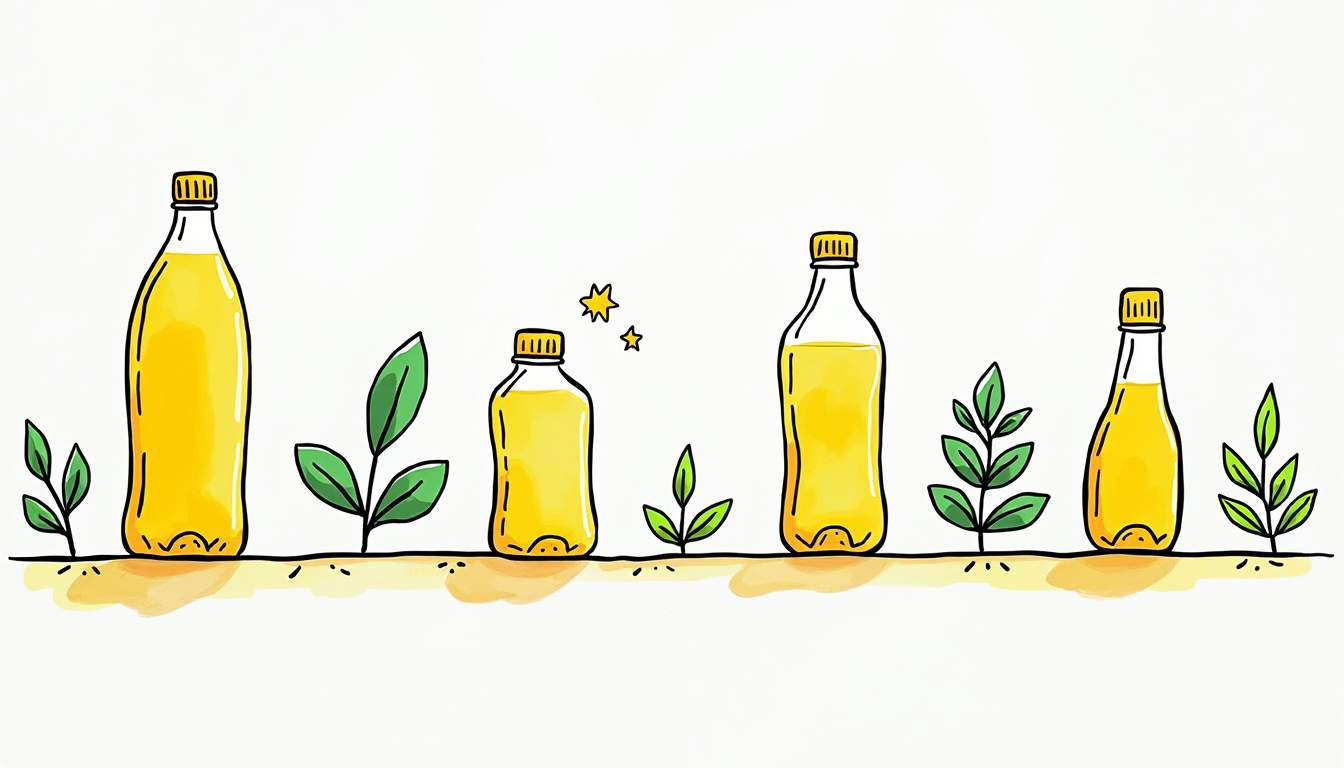
By ensuring that every step of the production process is documented and accessible, brands can build trust with their customers. This transparency not only enhances brand loyalty but also encourages consumers to make informed choices about the products they purchase.
Comprehensive Cotton Care Guide
While recycled polyester is a significant focus, it's essential to remember the role of other materials, such as cotton. A comprehensive cotton care guide can help consumers maintain the quality and longevity of their cotton garments. Proper washing, drying, and storage techniques can extend the life of cotton products, reducing the need for frequent replacements.
Brands can also promote sustainable cotton sourcing practices, further enhancing their commitment to environmental responsibility. By educating consumers on proper care and sustainable choices, companies can foster a culture of sustainability in fashion.
Designed for Customization
Customization is at the heart of what makes brands like Nerds unique. Offering a range of customizable options allows businesses to create apparel that resonates with their audience. From screen printing to embroidery, the possibilities are endless.
This focus on customization not only meets the needs of B2B clients but also aligns with the brand's values of creativity and clever solutions. By providing tailored products, brands can foster deeper connections with their customers, enhancing brand loyalty and satisfaction.
Introducing Prepster 2.0: The Ideal Blank Polo
Among the standout products in the Nerds catalog is the Prepster 2.0, an improved polo shirt designed with both style and sustainability in mind. This versatile garment is perfect for customization, making it an ideal choice for businesses looking to create a cohesive brand image.
The Prepster 2.0 combines comfort, durability, and a timeless design, ensuring that it remains a staple in any wardrobe. By utilizing recycled materials, it exemplifies the brand's commitment to sustainability while providing a high-quality product that customers can feel good about wearing.
In conclusion, the journey from bottle to garment is a testament to the innovation and dedication of brands committed to sustainability. By understanding the processes involved and the advantages of recycled materials, consumers can make informed choices that contribute to a more sustainable future. Brands like Nerds are leading the way, proving that style and sustainability can go hand in hand.
Join the Sustainable Fashion Movement with Nerds
Embrace the future of fashion with Nerds, where sustainability meets style. Our commitment to the environment is woven into every garment, offering you the opportunity to wear your values proudly. Elevate your brand and make a positive impact with our customizable, eco-friendly apparel. Ready to make a difference? Shop Now and join us in transforming the industry, one recycled bottle at a time.

